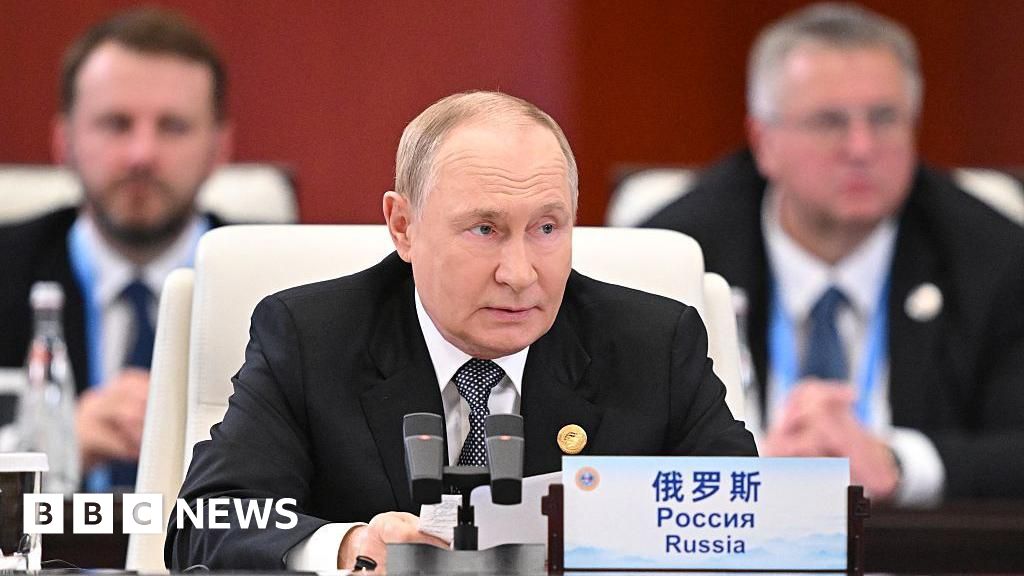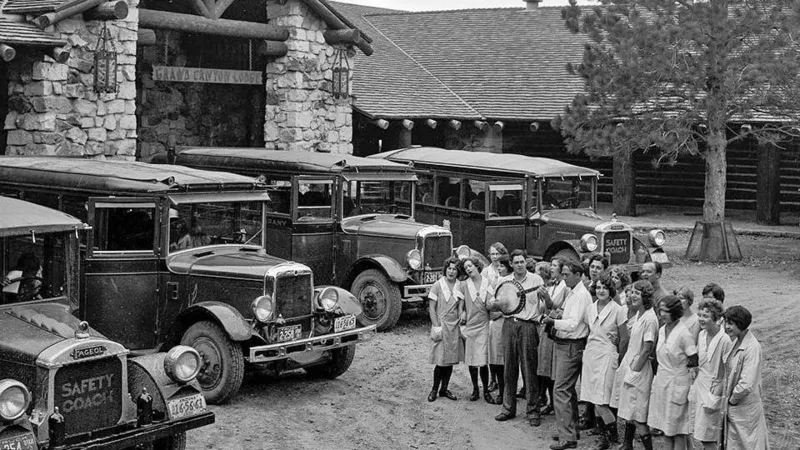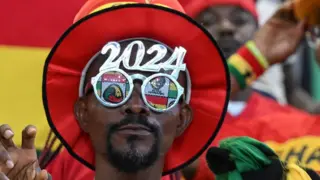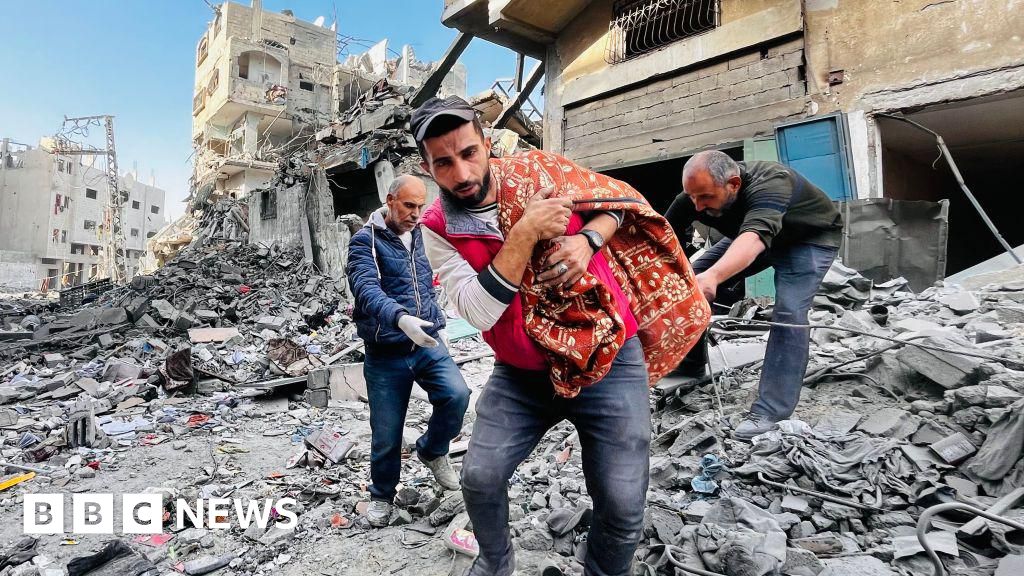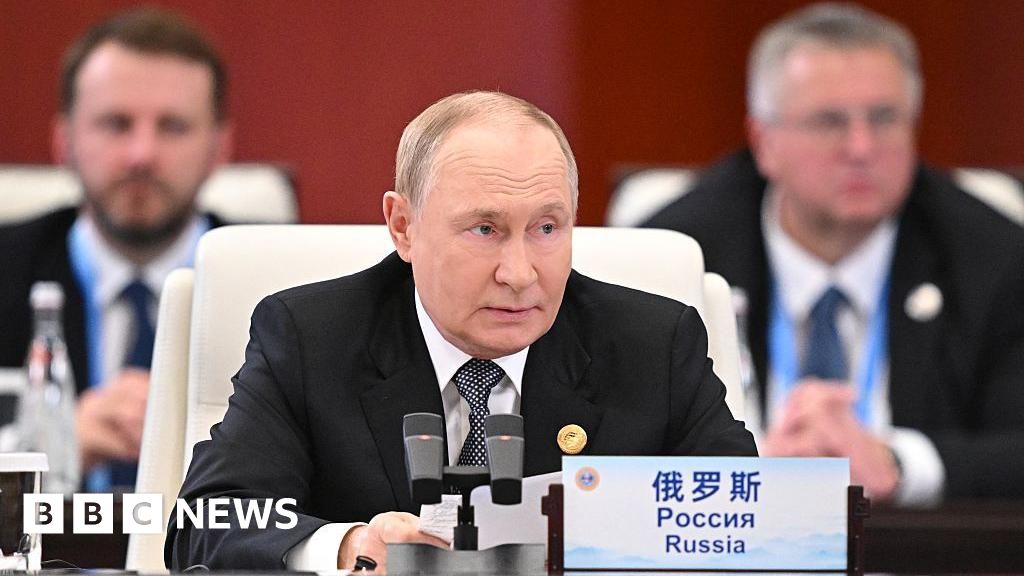
Russian President Vladimir Putin says he reached “understandings” with US President Donald Trump over the end of the Ukraine war at their meeting in Alaska last month.
But he did not say whether he would agree to peace talks with Ukrainian President Volodymyr Zelensky brokered by Trump, who had apparently given Monday as a deadline for Putin’s response.
Speaking during a summit in China, Putin continued to defend his decision to invade Ukraine, once again blaming the West for the war.
Following the Alaska meeting, US special envoy Steve Witkoff said Putin had agreed to security guarantees for Ukraine as part of a potential future peace deal, though Moscow has yet to confirm this.
Putin was speaking in Tianjin at the Shanghai Co-operation Organisation summit, where he met Xi Jinping and Narendra Modi.
He thanked the Chinese and Indian leaders for their support and their efforts to “facilitate the resolution of the Ukrainian crisis”.
China and India are the biggest buyers of Russian crude oil, attracting criticism from the West that they are propping up the Russian economy which has been battered by the war effort.
In his speech, Putin also said that the “understandings reached” at his meeting with Trump in Alaska were “I hope, moving in this direction, opening the way to peace in Ukraine”.
At the same time, he reiterated his view that “this crisis wasn’t triggered by Russia’s attack on Ukraine, but was a result of a coup in Ukraine, which was supported and provoked by the West”.
He also attributed the war to “the West’s constant attempts to drag Ukraine into Nato”.
The Russian president has consistently opposed the idea of Ukraine joining the Western military alliance. But both this claim – and that the war was provoked – have been repeatedly rebuffed by Western allies.
It was in 2014 that Putin seized Crimea and Russian proxies grabbed part of eastern Ukraine. Years later, in February 2022, Putin then ordered Russia’s full-scale invasion of Ukraine.
Putin’s latest comments come days after Russia launched its second biggest aerial attack on Ukraine in the war.
On Friday, French President Emmanuel Macron said that Putin faced a Monday deadline set by Trump to agree to peace talks with Zelensky.
If the Russian leader does not agree, “it will show again President Putin has played President Trump”, said Macron.
But in an interview with CNN, on 22 August, Trump himself again gave Putin “a couple of weeks” to give a response before the US takes action, in the latest of a series of ultimatums and deadlines he has issued to the Russian leader.
Trump had previously said he could solve the Ukraine war in one day.
Following his meeting with Putin last month, Trump dropped a demand for a ceasefire and called instead for a permanent peace deal.
He also met Zelensky along with top European leaders who paid an urgent visit to Washington DC.
Trump insisted there would be “no going into Nato by Ukraine” as part of a peace deal.
But he also hinted there would be security guarantees, saying Europe was the “first line of defence” and that the US would be involved.
“We’ll give them good protection,” he said, though he clarified it would not mean sending US troops to Ukraine.
US Special Envoy Witkoff also told CNN that Putin had agreed to security guarantees.
He said this would see the US and Europe “effectively offer Article 5-like language to cover a security guarantee”, referring to the Nato clause which states that member states should defend another member that has come under attack.
Zelensky has said he expected a framework for security guarantees to be set out on paper as soon as this week.
But last Friday, Russia criticised Western proposals as “one-sided and clearly designed to contain Russia”, adding that it turned Kyiv into a “strategic provocateur”.
Russian attacks on Ukraine have continued. Last Thursday, Moscow fired 629 drones and missiles at Kyiv, killing 23 people in one of the biggest aerial assaults of the war so far, prompting outrage from European leaders.
Germany and France have since pledged to put pressure on Russia to agree to a deal.
Meanwhile, Zelensky has rejected proposals for a buffer zone with Russia as part of a peace deal.
He has accused Russia of not being ready for diplomacy and seeking ways to postpone the end of the war.
